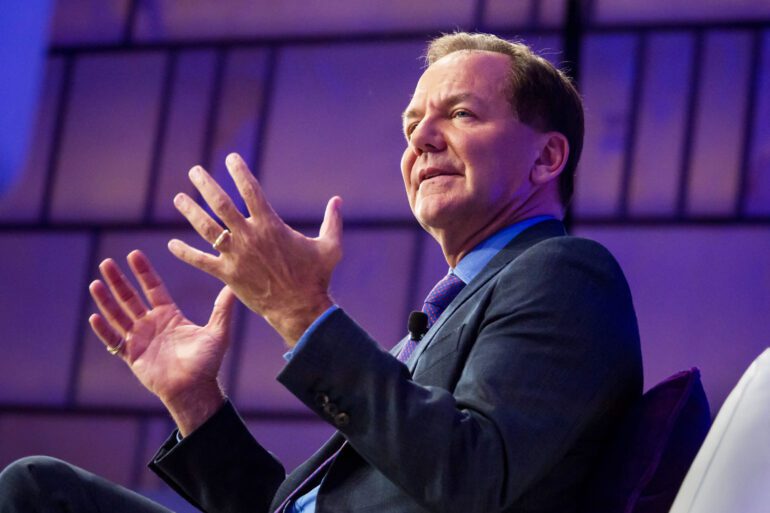TL;DR:
- The introduction of large language AI models like ChatGPT will have a significant impact on the economy and stock market.
- Investor Paul Tudor Jones believes that ChatGPT’s adoption could lead to a “productivity boom” that lowers inflation and raises the stock market.
- Previous productivity booms occurred after investments in infrastructure, the introduction of personal computers, and the Internet.
- ChatGPT’s fast adoption rate and 100 million active users in two months further support its potential impact.
- During previous productivity miracles, the stock market appreciated by an average of 15% per year with decreased inflation and expanded PE ratios.
- Lower inflation could allow the Federal Reserve to lower interest rates, benefiting the stock market.
- The onset of AI will create winners and losers in the stock market, with Apple potentially facing challenges.
- The overall sentiment is optimistic, suggesting a favorable outlook for the stock market due to AI’s transformative potential.
Main AI News:
The impact of large language artificial intelligence models, such as ChatGPT, is poised to revolutionize the economy and the stock market, asserts Paul Tudor Jones, a billionaire investor. In a recent interview with CNBC, Jones highlighted how the widespread adoption of ChatGPT has completely transformed his perspective on inflation and the stock market over the past six months. He believes that the introduction of these models could trigger a “productivity boom” that not only curbs inflation but also propels the stock market to new heights.
Jones draws parallels to previous periods of productivity booms in the economy to support his thesis. For instance, in the late 1950s, the United States witnessed a surge in productivity following substantial investments in infrastructure. Similarly, the introduction of personal computers in the 1980s and the Internet in the 1990s resulted in significant productivity gains. Jones contends that each of these episodes led to productivity increases of approximately one to three percent. With regards to ChatGPT, he postulates that it has the potential to deliver an annual productivity boost of 1.5% over the next five years.
The magnitude of the impact associated with large language models like ChatGPT is further substantiated by their unprecedented rate of adoption. OpenAI’s popular chatbot achieved an impressive milestone, garnering 100 million active users within a mere two months of its launch. Jones finds this remarkable adoption rate compelling and sees it as a driving force behind the anticipated productivity surge brought about by artificial intelligence. If his predictions hold true and the economy reaps substantial efficiencies through AI, the stock market could be poised for an unprecedented boom.
Looking back at historical examples, Jones highlights the stock market’s response during periods of productivity miracles. On average, stock market appreciation stood at an impressive 15% per year, accompanied by a decrease in inflation. Furthermore, price-to-earnings (PE) ratios experienced expansion between 1.5 and 2. A decline in inflation would be especially advantageous for the Federal Reserve, as it would enable policymakers to lower interest rates from the current target of just over 5%. This potential development could further fuel the stock market’s upward trajectory.
However, Jones cautions that not all stocks will benefit equally from the advent of AI. The disruption caused by these technologies is likely to create winners and losers within the stock market. Jones even hints at the possibility of Apple being among the companies that could face challenges. Cathie Wood of Ark Invest shares a similar sentiment, emphasizing that while long-term productivity gains are expected from large language models, significant battles will unfold within the stock market between winners and losers. Nevertheless, the overall sentiment remains optimistic, suggesting that the tide is turning in favor of the stock market.
Conlcusion:
The emergence of large language artificial intelligence models, exemplified by ChatGPT, is predicted to have a transformative impact on the economy and stock market. Paul Tudor Jones, a prominent investor, believes that the widespread adoption of these models will unleash a productivity boom, reducing inflation and driving the stock market growth.
Citing historical examples and the rapid adoption rate of ChatGPT, Jones asserts that the stock market could appreciate significantly, with a subsequent decline in inflation and potential expansion of PE ratios. While winners and losers are expected to emerge in this new era, the overall outlook for the stock market appears positive, signaling a tide of change brought about by artificial intelligence.

